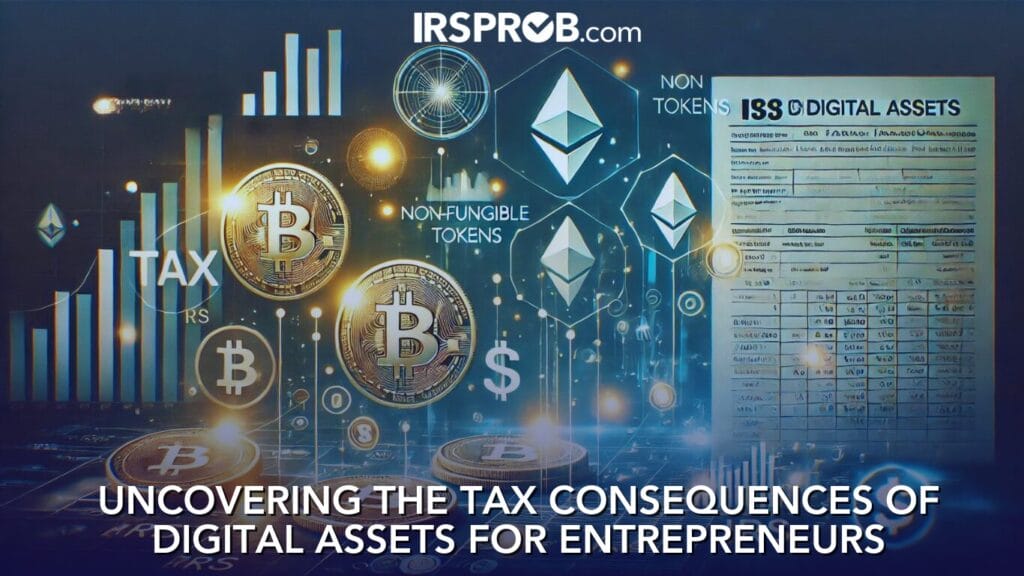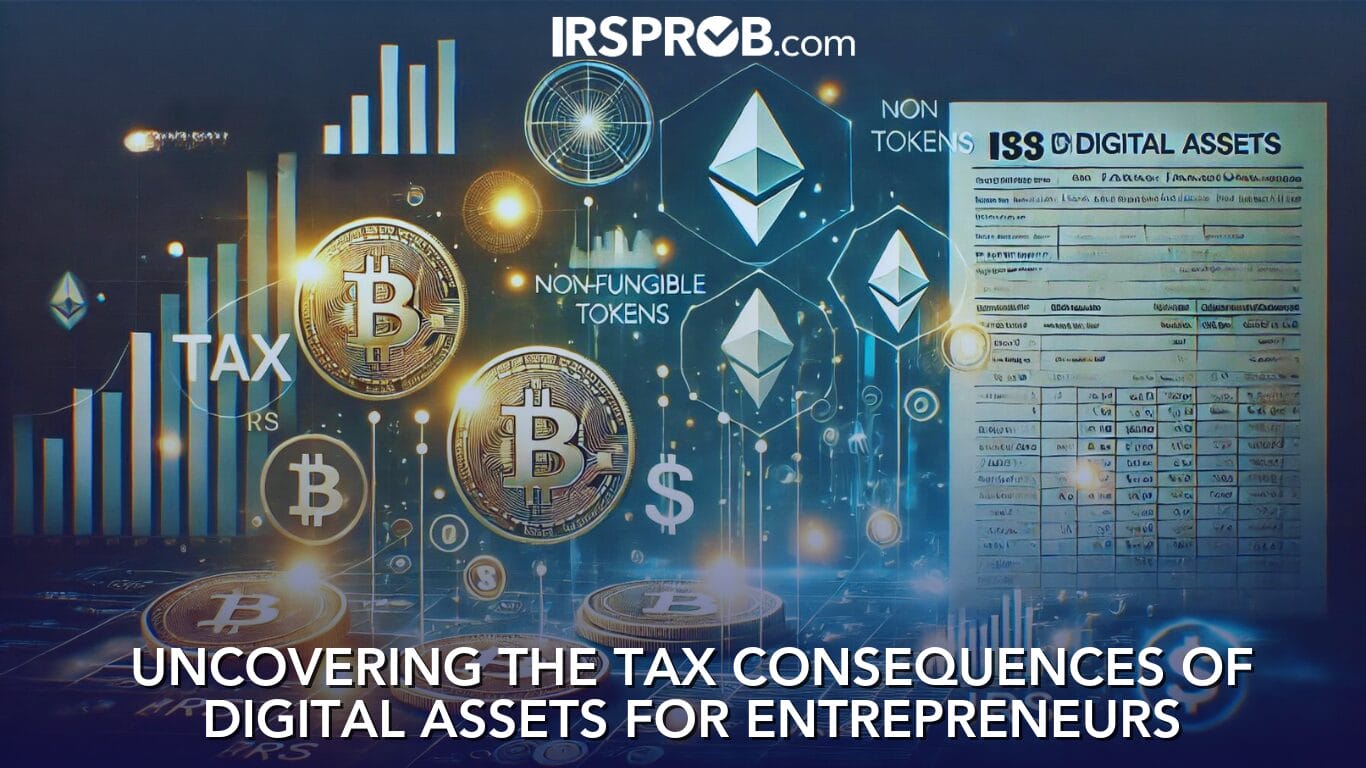
As digital assets like cryptocurrencies and NFTs continue to gain mainstream traction, it’s critical for business owners to understand how the IRS views and taxes these assets. Digital assets, including virtual currencies like Bitcoin or Ethereum, and non-fungible tokens (NFTs), are treated as property for federal tax purposes. If you’re dealing with digital assets in your business, you need to be aware of the tax obligations and opportunities that come with them.
What Are Digital Assets?
The IRS defines a digital asset as any digital representation of value recorded on a cryptographically secure distributed ledger. This includes virtual currencies and can also encompass NFTs. Whether you’re accepting cryptocurrency as payment for goods or services, mining cryptocurrency, or trading NFTs, these transactions all come with tax responsibilities. Digital assets are increasingly being used as a medium of exchange, but it’s essential to remember that these transactions trigger tax events.
Taxable Transactions Involving Digital Assets
Digital assets are considered property by the IRS, which means that many types of transactions are taxable. These include:
- Receiving digital assets as payment for goods or services.
- Mining, staking, or earning digital assets as a reward.
- Selling, exchanging, or disposing of digital assets.
- Giving digital assets as a gift.
For example, if you receive cryptocurrency as payment for services rendered, you must report the fair market value (FMV) of the digital asset at the time of the transaction in U.S. dollars. This applies to all business transactions involving digital assets, whether you’re receiving them as payment or bartering goods and services. The FMV is determined by the value of the cryptocurrency on the date of receipt, and this income is subject to self-employment tax, just as if you had received cash.
Bartering and Digital Assets
One common use of digital assets is bartering, where you exchange one good or service for another without using money. For tax purposes, the IRS treats bartering with digital assets similarly to cash transactions. If you exchange services or products for digital assets, you must report the FMV of the assets as business income, just as you would if you were paid in cash.
Example:
Jill runs a cleaning business and cleans a client’s house in exchange for cryptocurrency. If the FMV of the cryptocurrency she receives is $15,000 at the time of the transaction, Jill must report $15,000 as business income on her tax return.
Employee Compensation and Digital Assets
If you compensate employees with digital assets, the value of the assets is treated as wages. This means they are subject to federal income tax withholding, FICA, and unemployment taxes. The FMV of the digital assets must be reported on Form W-2, just like regular wages.
Reporting Digital Asset Transactions
For businesses, one of the most important aspects of dealing with digital assets is proper reporting. Any gains or losses from selling or exchanging digital assets must be reported on your tax return. If the assets were held as a capital investment, you will generally recognize capital gains or losses on these transactions.
If you’re holding digital assets for investment purposes, any sale or exchange may result in a taxable capital gain or loss. The holding period for determining short-term or long-term capital gains begins the day after you acquire the digital asset.
You must report these transactions in U.S. dollars, which can sometimes be challenging due to the fluctuating value of digital currencies. Online platforms such as Coinbase or Binance often provide transaction records, but it’s wise to maintain your own records as well. Various cryptocurrency tracking services are also available to help business owners track transactions and determine their tax liabilities.
Mining and Airdrops: Tax Implications
Cryptocurrency mining is another area of interest. Miners are rewarded with digital tokens, and the FMV of these tokens must be reported as gross income on the day they are received. If you are mining as part of a trade or business, this income is subject to self-employment tax.
Airdrops, where new units of cryptocurrency are distributed following a hard fork, also result in taxable income. If you receive new tokens through an airdrop, you must report the FMV as ordinary income. However, you only report income when you have constructive receipt—meaning you have the ability to exercise control over the new tokens.
Staying Compliant and Maximizing Tax Efficiency
Business owners must stay vigilant in tracking and reporting their digital asset transactions. Since digital assets are treated as property, failing to report these transactions properly could lead to penalties. However, the IRS has provided guidance on how to handle digital asset transactions, and with careful planning, business owners can avoid negative tax consequences.
For instance, keeping detailed records of all digital asset transactions and their corresponding FMV can ensure you’re reporting your income accurately. This is especially important if you’re using digital assets as part of your business operations, such as accepting cryptocurrency as payment or using it in bartering transactions.
Conclusion
Digital assets are becoming an integral part of many businesses, but they come with a host of tax obligations that every business owner needs to understand. By treating digital assets like property, the IRS has made it clear that these assets are subject to the same tax rules as other forms of property. Whether you’re accepting cryptocurrency as payment, trading NFTs, or mining digital assets, you need to be aware of the tax implications.
As always, proper planning can help you navigate these challenges while staying compliant with IRS regulations. If you have any questions about how digital assets may impact your business taxes, it’s important to consult with a tax professional to ensure that you are reporting and handling your digital asset transactions properly.








